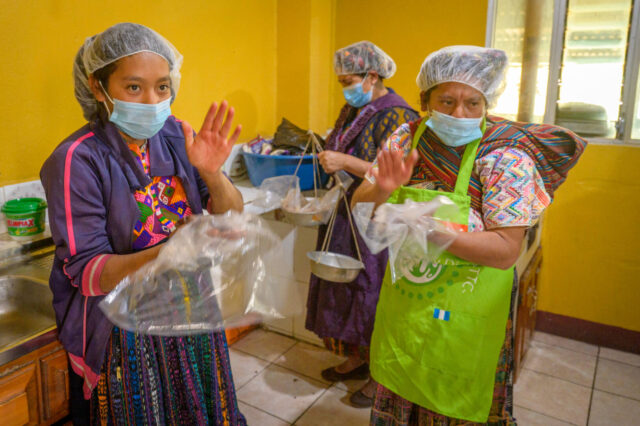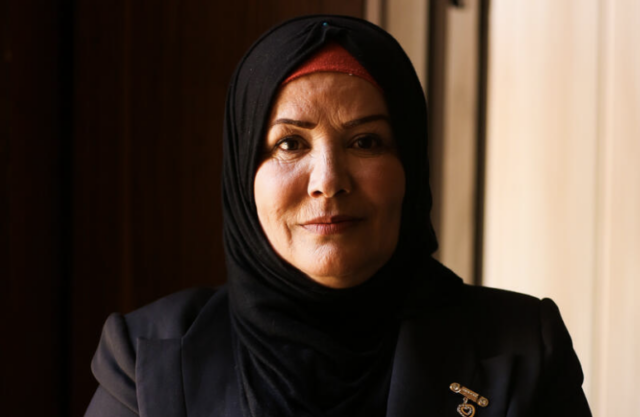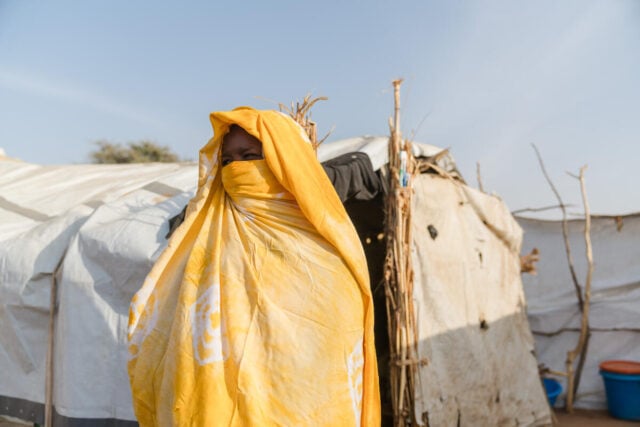
Women and Girls
Women and girls living in poverty face more obstacles simply because they were born female. World Vision intentionally focuses on women and girls in every aspect of our work because God created and loves all people, and we know that when everyone gains equal access and opportunity, children are better cared for, families are stronger, and communities are more prosperous.
Addressing inequalities for women and girls is integrated into everything we do, at every stage of a woman’s life.
These are just a few examples of the many types of projects we facilitate.
912,031
women and girls benefited from access to financial services, savings groups, agricultural training, technology, and markets.
Thanks to the support of World Vision donors in the U.S. in 2023. Total includes participants reached through World Vision’s privately funded programs and our publicly funded emergency response programs. Some women and girls have participated in more than one program.
179,049
women and girls benefited from programs that educated community members, increased protection, and challenged harmful cultural norms such as child marriage.
Thanks to the support of World Vision donors in the U.S. in 2023. Total includes participants reached through World Vision’s privately funded programs and our publicly funded emergency response programs. Some women and girls have participated in more than one program.
Our Gender Equality Approach
Why is gender equality so foundational to development work?
At World Vision, we believe that promoting gender equality is core to effective and sustainable development. Gender inequality and gender-based violence costs everyone. An estimated one out of three women globally will be beaten, coerced into sex or otherwise abused in her lifetime… In its extreme form, gender-based violence is manifested through crimes such as rape and honor killing, harmful cultural practices such as early marriage and prenatal sex selection, but many of its forms are often subtler and more pervasive, such as restriction of behaviors and opinions and control over choices and resources.
Gender-based violence spans cultures and social groups, religion, education levels, and has devastating consequences on the lives of women, children and their families. It is deeply rooted in gender inequalities, in cultural norms that assert men’s superiority and power over women, and in rigid norms about men’s and women’s roles.
What is your approach to gender equality work?
We strive to design programs that address gender inequality and prevent gender-based violence. We address gender inequality by working with men, women, girls and boys as equal partners in transforming discriminatory beliefs and practices. We believe in the importance of working with faith leaders as catalysts in changing harmful attitudes and behaviors in their communities. By engaging church leaders in respectful dialogue regarding their culture and the Bible, we affirm those aspects of culture that positively impact communities and challenge those that entrench power imbalances between men and women. By educating faith leaders on gender issues and emphasizing the unique giftedness and important role of women in the families and communities, women are empowered to influence their own futures, girls have improved opportunities to attend school, and churches become centers of justice against gender inequities in their communities.
How do you engage men and fathers to reduce violence, child marriage, and prenatal sex selection?
Prenatal sex selection — choosing to continue or terminate a pregnancy based on the baby’s sex — is one of the most blatant forms of gender-based violence. In Armenia, more than 1,400 girls are unborn every year because of this practice. To combat it, World Vision’s work in Armenia focuses on examining and challenging harmful gender attitudes and practices that support son preference. In partnership with Promundo, World Vision has developed the Caring for Equality curriculum to work with men, women, and youth to examine, question, and transform social norms.
In India, World Vision works with men as fathers to address the issue of early marriage, child abuse, and gender-based violence in families. A More Equal Future is a curriculum that is used by community facilitators to engage with fathers, daughters, and entire families to critically examine and change norms that support child marriage.
In Sri Lanka, we work with fathers to prevent violence against women and children, and to promote the involvement of men as partners and caregivers. Community facilitators create safe and constructive spaces for men to reflect on and redefine what it means to be men and fathers in their communities. A qualitative assessment of this project showed strong indicators of success, including a decline in domestic violence, increased school enrollment, reduced alcohol consumption, and an increase in shared caregiving.
Gender Equality Resources
Gender Equality and Social Inclusion Approach (PDF)
Gender equality and social inclusion is integral to empowering vulnerable children, families, and communities to transform their realities. Read about World Vision’s approach and theory of change.
Gender Equality and Social Inclusion DME Toolkit (PDF)
This toolkit provides guidance and tools to support the integration of GESI perspectives in all stages of project Design, Monitoring, and Evaluation (DME).
New Beginnings: Constructive Male Engagement (PDF)
Through the USAID-funded Nobo Jatra program in Bangladesh, World Vision gathered evidence of the impact of male engagement activities.
GESI DME Training Manual (PDF)
This companion guide to the GESI DME toolkit will help facilitators run training to integrate gender equality and social inclusion into design, monitoring, and evaluation.
Ways to Give to Gender Equality
Bicycle for a community health worker
In many countries, girls are forced to drop out of school because they live too far away or risk dangers such as violence or kidnapping on their walking route. But an education is one of the most important opportunities for breaking the cycle of poverty. Your gift of a bicycle will provide safer, speedier transportation and help open the door to a new future for a school-age girl.
Become a Girls and Women in Crisis Partner
In developing countries, poverty and harmful cultural traditions often deny girls the ability to thrive — forcing them into child marriage, keeping them from an education, and subjecting them to abuses like child labor and sex trafficking. This has devastating consequences on their lives and futures.
You can empower girls and women to overcome poverty and abuse, reach their God-given potential, and help their communities become places where all can thrive.
Monthly giving is the most effective way to help children and families who need it most. Plus, it lowers costs, which means more of your gift helps kids!
Ways to Give to Gender Equality
Bicycle for a girl
In many countries, girls are forced to drop out of school because they live too far away or risk dangers such as violence or kidnapping on their walking route. But an education is one of the most important opportunities for breaking the cycle of poverty. Your gift of a bicycle will provide safer, speedier transportation and help open the door to a new future for a school-age girl.
Become a Girls and Women in Crisis Partner
In developing countries, poverty and harmful cultural traditions often deny girls the ability to thrive — forcing them into child marriage, keeping them from an education, and subjecting them to abuses like child labor and sex trafficking. This has devastating consequences on their lives and futures.
You can empower girls and women to overcome poverty and abuse, reach their God-given potential, and help their communities become places where all can thrive.
Monthly giving is the most effective way to help children and families who need it most. Plus, it lowers costs, which means more of your gift helps kids!




